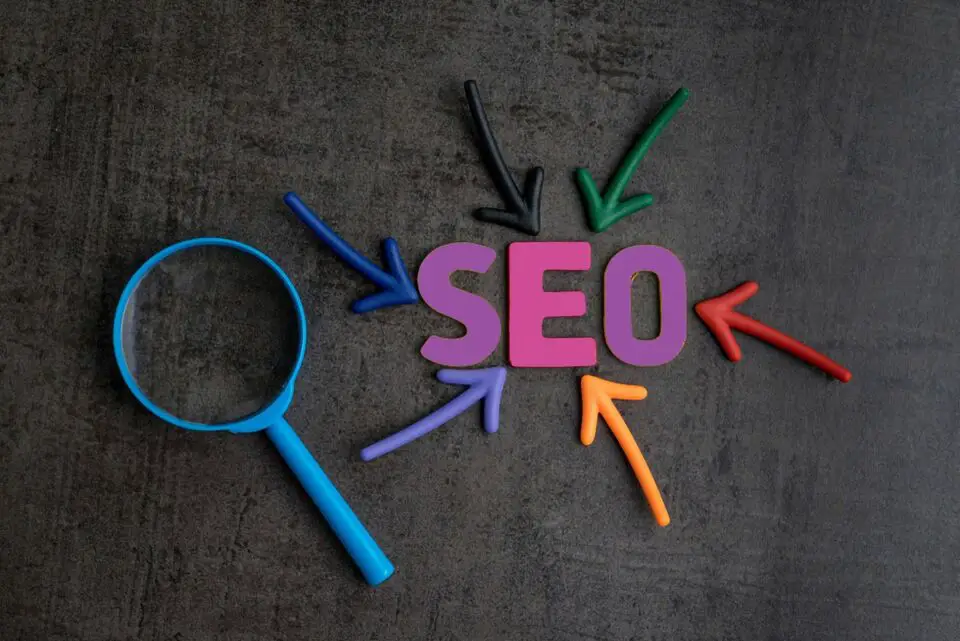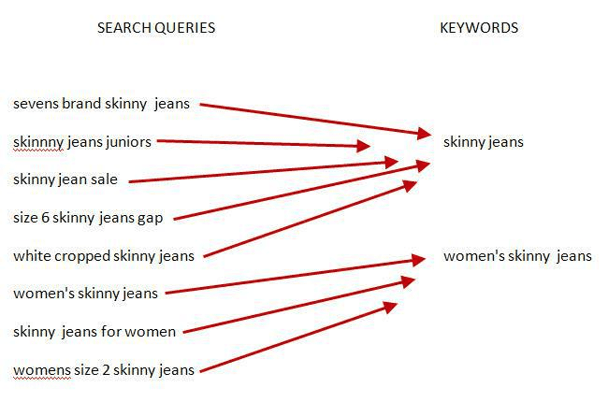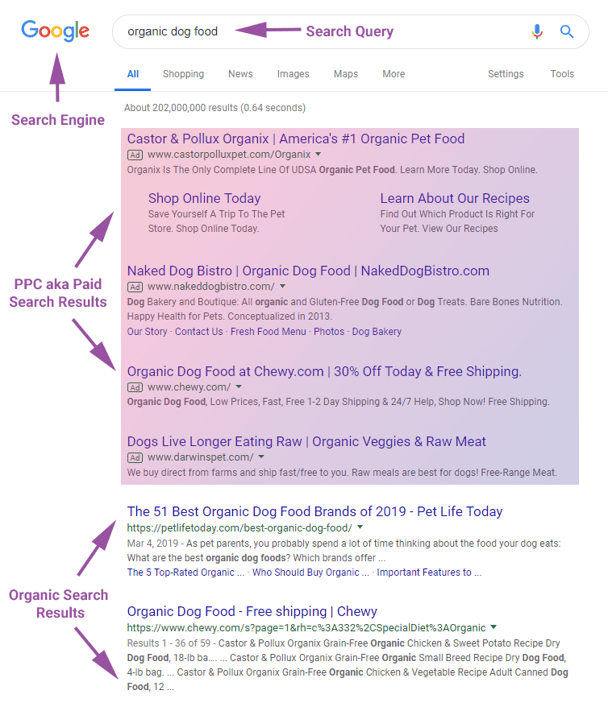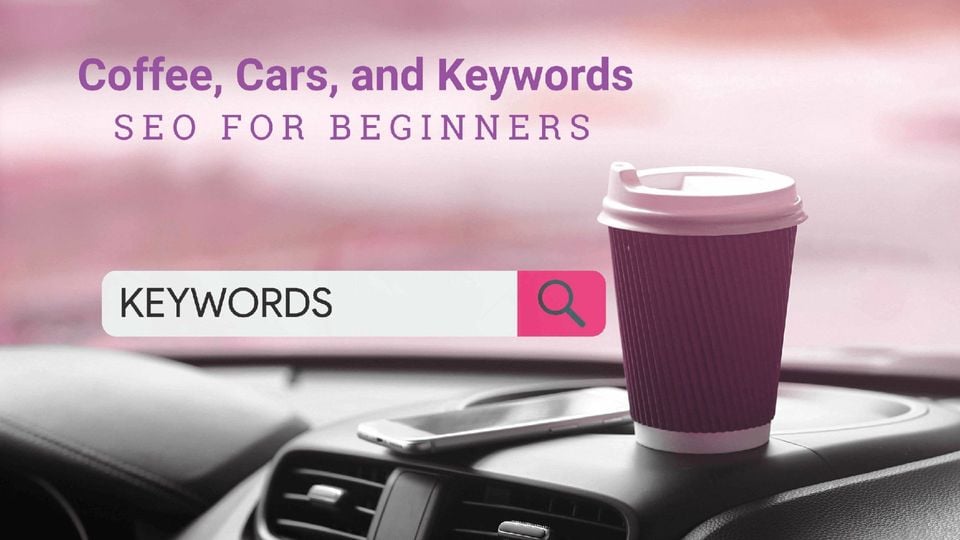SEO for Beginners: How a Search Engine Works
7 MIN READ

We have a lot of clients that want to learn about SEO, but struggle to find information written for beginners. Most articles are written with the assumption that the reader has a basic knowledge of SEO, which can be intimidating if you’re new to the subject.
Case in point, look at one website’s definition of SEO:
SEO is the process of improving the visibility of a website on organic search engine results pages. This goal is accomplished through the implementation of search engine friendly website architecture, optimized internal navigation and link landscape, as well as optimization of the content.
If I was a beginner, I’d have to look up the definitions of half the words within that definition.
But SEO isn’t as complex as it first seems. Once you have a basic understanding of the concept and are familiar with the jargon, it’s actually pretty easy to understand.
So if you’re looking for an introduction to SEO that is truly written for beginners, this blog is for you. We’ll cover the basics of how a search engine works and explain common terms in SEO in three ways
1. The standard definition
2. The ELI5* version of the standard definition
3. Why it’s essential for your business
*If you’re not familiar with ELI5, it means Explain Like I’m 5. It’s a way to explain complex subject matter so that even a five-year-old can understand.
Now that we’ve got our first definition out of the way let’s move on to the next!
We’ll start with the SE in SEO.
Search Engine
Definition: A web search engine is a type of website that helps a computer user find information on the Internet. It does this by looking through other web pages for the text the user wants to find. The software that does this is known as a search engine.
ELI5: A website like Google, Bing, or Yahoo that a person uses to search for websites on the internet. Google is the most commonly used search engine. When you hear someone say, “I need to Google…” they are talking about using a search engine.
Why this matters: 4 in 5 consumers use search engines to find information. If you want people to know about your business, it is critical to have an SEO strategy in place.
*Note that for the rest of the blog, I'll reference only one search engine, Google. Google is the most popular and well-known search engine and as we get into SEO strategy, we'll talk about methods to optimize your website for Google. This is due to the fact that each search engine has different algorithms and it makes the most sense to optimize your website for the search engine that is used the most.
SEO (Search Engine Optimization)
Definition: The process of affecting the online visibility of a website or a web page in a web search engine's unpaid results—often referred to as "natural", "organic", or "earned" results.
ELI5: How to get your website to show up first when someone types something into a search engine. You can do this by OPTIMIZING your website for SEARCH ENGINES...SEO! Think of SEO like you would an Olympic figure skating competition. Everyone is competing for first place, but instead of the gold medal, businesses want to show up first when someone is looking for the service they offer. To show up first, they need to perfect their website and meet all the criteria that the judges (aka search engines) are looking for. They can also get penalized for not meeting all of the elements that the judges (aka search engines) are looking for.
Why this matters: If you have a flower shop in Portland Oregon, you want people your website to show up first when someone types “Portland Oregon flower shop” into a search engine. SEO will directly impact your website traffic, brand awareness, and revenue.
SERP (Search Engine Results Page)
Definition: The pages displayed by search engines in response to a query by a searcher. The main component of the SERP is the listing of results that are returned by the search engine in response to a keyword query, although the pages may also contain other results such as advertisements.
ELI5: After someone types something into a search engine and presses enter, a page will show up with the results that the search engine thinks are the best match for what someone searched for. It’s like when you walk into a clothing store and explain to the associate that you’re looking for some dresses for the summer. She’ll then bring out 8-10 dresses and show them to you in the order that she thinks she’ll work best for you.
Why this matters: Less than 10% of people go to the second page of search engine results. Think about if that associate brought out 20 or 30 dresses for you to try on. You’d most likely find what you’re looking for in the first 10 and move on. Getting your website to show up on the first page of the SERP is critical for brand awareness and bringing in new customers.
Organic Search
Definition: Organic search is a method for entering one or several search terms as a single string of text into a search engine. Organic search results, appear as paginated lists, are based on relevance to the search terms; and exclude advertisements. Whereas, non-organic search results do not filter out pay per click advertising.
ELI5: There are two types of search results that show up when you type something into Google, paid and organic. You know how all those celebrities got caught bribing prestigious universities to accept their kids? That’s what paid search results are. You know all the kids who got into prestigious universities because of good grades and hard work? That’s what organic search results are. Organic search results are the natural rankings determined by Google.
Why this matters: By working hard and optimizing your website for search engines (aka SEO), your website will rank better in organic searches. Upperranks states it perfect, “While getting a high ranking in organic searches takes time, the results are long-lasting. Once you establish search engine visibility, it will serve your business for years after it’s implemented. With all that said, an organic traffic strategy is as close as you’ll get to a traffic system on autopilot.”
Paid aka PPC
Definition: Pay-per-click (PPC), also known as cost per click (CPC), is an internet advertising model used to drive traffic to websites, in which an advertiser pays a search engine when the ad is clicked.
ELI5: You know how you can buy front of the line passes at Disneyland to skip the hour-long wait and hop right to the front of the line? That’s what paid, pay-per-click, or PPC search results are (they all mean the same thing). You’ll also hear people refer to PPC as Google AdWords or Google Ads. It works by letting businesses pay to have their website listed at the top of the search engine results page and scoot ahead of the websites that those that earned their page-one spots organically.
Why this matters: When it comes to increasing traffic to your website, you have two options, PPC or SEO. The topic of paid advertising is an entirely different beast, and we’ll dive into that in a future blog, but you’ll need to have at least an intermediate understanding of SEO before tackling PPC. It’s easy to lose thousands of dollars in PPC if you don’t know what you're doing, but it’s also a fast and easy way to bring traffic to your website.
Search Queries aka Search Terms
Definition: The actual word or string of words that a search engine user types into the search box. You can think of a search query as the real-world application of a keyword.
ELI5: Search queries are the words or phrases that people ACTUALLY type into search engines. A business may focus on the keyword “blue plate” on their website, but users’ search queries are all the variations, misspellings, and different ways that people actually search for “blue plate” including blue plate settings, blue dinnerware, blue plats, mint plates, blue things to eat off of, etc;
Why this matters: As you learn more about SEO, you’ll hear A LOT about search queries and keywords. A LOT. But just like guarantee and warranty, or infer and imply, search queries and keywords are incorrectly used interchangeably. They are actually two different terms. To help ensure you’re off to the right start in your SEO education, it’s best to make a note of the difference: People use queries. These are the phrases that people are actually searching for. Businesses use keywords as part of their marketing strategy.
Keyword
Definition: A keyword is like the platonic ideal of a search query – it's an abstraction that we extrapolate from multiple search queries. (Wordsteam)
ELI5: A keyword is the word or words that a business wants to target. If you sell house paint, “house paint” is your keyword. The keywords a business uses are part of their marketing strategy. Marketers will look at trends in search queries to determine keywords they should use in their SEO strategy.
Why this matters: This is the first definition that you’ll need to know that has to do with SEO strategy. As you learn more about SEO and learn about the inner-workings of search engines, you’ll quickly learn that keywords will be the most important part of your SEO strategy.
Here’s a helpful visual from Wordstream that illustrates the difference between keywords and search queries:

Let’s call this blog a wrap for now. That was a lot of information to digest and we’ll get into keywords, strategy, and dive deeper into the OPTIMIZATION part of search engine optimization in next week’s blog.
For easy reference, here’s where all the definitions you just learned about live on the SERP (an acronym that you now know!): 
Recent Posts

SEO for Beginners: Coffee, Cars, and Keywords
Imagine that you wanted to set up a cafe in a local mall. You rent a space,...

Is It Time to Outsource Your Lead Generation and Nurturing Strategy?
Without new leads, your business can't grow. You need new leads like a car...

Business Blogging 101: What You Need to Know Before Your First Blog
Did you know that motel is short for motorists’ hotel? Or that car comes from...
